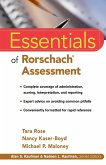"...how a man rallies to life's challenges and weathers its storms tells everything of who he is and all that he is likely to become." --St. Augustine It has long been understood that how a person adjusts to life stresses is a major component of his or her ability to lead a fulfilling life. Yet it wasn't until the 1960s that coping became a discrete topic of psychological inquiry. Since then, coping has risen to a position of prominence in the modern psychological discourse--especially within the personality, cognitive, and behavioral spheres--and, within the past decade alone, many important discoveries have been made about its mechanisms and functioning, and its role in ongoing psychological and physical health and well-being. A book whose time has come at last, the Handbook of Coping is the first professional reference devoted exclusively to the psychology of coping. Reporting the observations and insights of nearly sixty leading authorities in stress and coping from a wide range of affiliations and schools of thought, it brings readers the state of the art in coping theory, research, assessment, and applications. In orchestrating the book, the editors have scrupulously avoided imposing any particular slant or point of view, other than the need to foster greater eclecticism and cooperation between researchers and clinicians concerned with the phenomenon of coping. The Handbook of Coping is divided into five overlapping parts, the first of which serves to lay the conceptual foundations of all that follows. It traces the history of coping from its origins in psychoanalytic theories of unconscious defense mechanisms, and provides an exhaustive review of the latest conceptualizations, models, and constructs. The following section provides an in-depth exploration of current research methodology, measurement, and assessment tools. Part Three explores key facets of coping in a broad range of specific domains, including everyday hassles, chronic disease, cataclysmic events, and many others. The penultimate section focuses on individual differences. Among important topics covered here are coping styles and dispositions; the role of family, social support, and education; and coping behaviors across the life span. The final section, Part Five, is devoted to current applications. Clinical parameters are defined and a number of specific interventions are described, as are proven techniques for helping clients to improve their coping skills. A comprehensive guide to contemporary coping theory, research, and applications, the Handbook of Coping is an indispensable resource for practitioners, researchers, students, and educators in psychology, the health sciences, and epidemiology. Of related interest ... EGO DEFENSES: Theory and Measurement --Edited by Hope R. Conte and Robert Plutchik This book explores the nature and manifestations of defense mechanisms and traces ego defense theory and research from Freud's initial conceptualization through recent work in object-relations theory and other psychoanalytically oriented approaches. It provides clinical guidelines for diagnosing, assessing, and dealing with defenses, reviews empirical research techniques, and indicates their value in development and in psychotherapy. This volume should be of value to theoreticians, clinicians, and researchers interested in finding appropriate tools for measurement of defense mechanisms. 1994 SOCIAL SUPPORT: An Interactional View --Edited by Barbara R. Sarason, Irwin G. Sarason, and Gregory R. Pierce The study of social support and its relationship to personality, health, and adjustment is one of the fastest growing areas of research and application in psychology. This book contains integrative surveys of clinical and field studies, experimental investigations, and life-span explorations. It approaches social support as an important facet of interpersonal relationships and shows its undesirable, as well as its positive, features. 1990 (0-471-60624-3) 528 pp.
Hinweis: Dieser Artikel kann nur an eine deutsche Lieferadresse ausgeliefert werden.
Hinweis: Dieser Artikel kann nur an eine deutsche Lieferadresse ausgeliefert werden.








